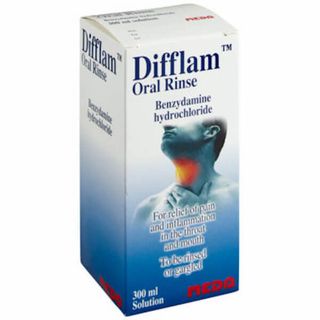
Mouth Ulcers
Mouth ulcers aren’t contagious and they’re not normally serious - but they can be pretty painful and uncomfortable. So, if you have one, you’ll probably want to get it sorted as soon as possible. Most of the time, ulcers are caused by accidentally biting your cheek, getting a burn from scalding food or cutting the inside of your mouth. If your ulcers come back again and again, and you don’t have any injuries, they might be triggered by tiredness, stress or anxiety. Thankfully, there’s a great choice of gels, rinses and sprays that can soothe your pain and help your ulcers heal fast.
Mouth Ulcers Treatments
 Difflam Rinse & Spray£6.99
Difflam Rinse & Spray£6.99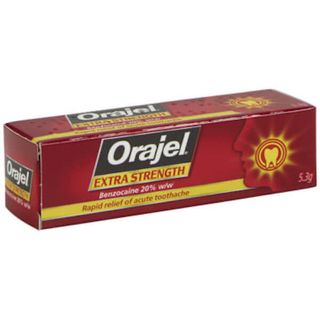
Orajel Extra Strength Toothache Gel
Orajel Extra Strength Toothache Gel£5.49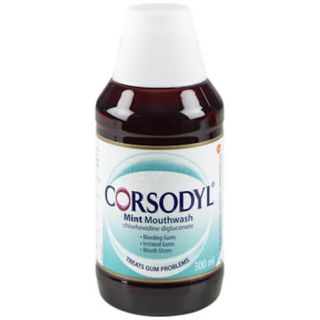
Corsodyl Mouthwash Mint
Corsodyl Mouthwash Mint£5.99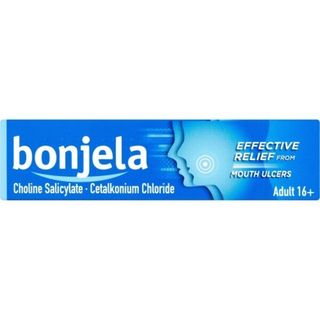
Bonjela Adult
Bonjela Adult£4.99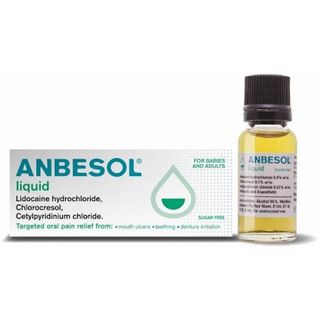
Anbesol Liquid
Anbesol Liquid£5.19
View recommended products for Mouth Ulcers
Don't wait to get the medical help you need.
View our recommended treatments and select your preferred treatment and quantity from a list of options for you.
- Selected by our UK-based medical team
- Quick and easy checkout
- Treatments dispatched same day (before 3pm)
Ordering as easy as 1, 2, 3
1. Find the ideal treatment
2. Get a free consultation
3. Enjoy speedy delivery
Advice for Mouth Ulcers
What are mouth ulcers?
Mouth ulcers are a common yet painful affliction. They usually present as round or oval sores that are found inside the mouth, developing on the lips, cheeks or tongue. Their appearance can vary; mouth ulcers can be red, white, yellow, or grey and are usually swollen. A sufferer can also experience multiple mouth ulcers at a time, which unfortunately may spread and grow. Although very uncomfortable, mouth ulcers are in most cases harmless. Without treatment, the majority of mouth ulcers will clear up within a fortnight.
There are various possible causes of mouth ulcers. To learn more about this, visit our guide to mouth ulcer causes.
What are the symptoms of mouth ulcers?
Mouth ulcers will present as round or oval sores that commonly appear inside the mouth. They can develop on the lips, inner cheeks or tongue. These swollen sores will be either red, white, yellow or grey in colour. Mouth ulcers are normally 2 - 8mm in diameter and may have a raised or defined border.
It is possible to present with multiple mouth ulcers at any given time. These sores can be painful and, depending on location, can make eating, drinking, talking and brushing teeth extremely uncomfortable.
How are mouth ulcers diagnosed?
In most cases, mouth ulcers can be treated at home; there is no need for an official diagnosis. It is only recommended you visit your doctor should any of the following apply:
- Your mouth ulcers are recurrent and frequent.
- Your mouth ulcers have persisted for longer than three weeks.
- Your mouth ulcers have become inflamed and painful, which may suggest a bacterial infection that will require treatment with antibiotics.
- You also have a fever, swollen glands or other signs of illness.
Mouth ulcers can also be a symptom of hand, foot and mouth disease, which is a viral infection that mainly affects young children. If you are worried or unsure about your mouth ulcers, it is advised to speak to a pharmacist, GP or dentist for an informed diagnosis.
What are the treatments for mouth ulcers?
Usually, mouth ulcers will heal on their own within a week or two. However, to speed up the healing process, we provide a range of treatment options here at The Independent Pharmacy. These include:
How can I prevent mouth ulcers?
In many cases, it is impossible to prevent mouth ulcers, as they are often the result of things that are out of our control (such as genetics or medical conditions). However, there are steps that can be taken that may help to reduce the risk of developing mouth ulcers. These include:
- Avoiding foods that are known to be triggers, such as chocolate or spicy foods.
- Using a soft-bristled toothbrush that will help to reduce irritation in the mouth.
- Avoid using toothpaste that contains Sodium Lauryl Sulphate.
- Avoid excessively chewing gum.
- Reducing your stress and anxiety levels.
- Try to avoid chewing or biting the inside of your mouth.